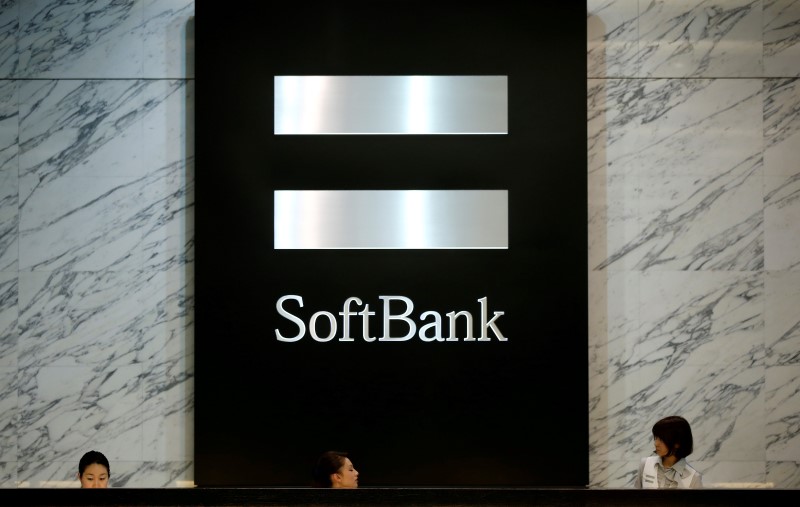By Ambar Warrick
Investing.com-- Japanese investment behemoth Softbank Group Corp. (TYO:9984) logged a quarterly loss on Monday as continued pressure on technology stocks, stemming from rising global interest rates, weighed on its holdings.
The firm posted a net loss attributable to shareholders of 3.16 trillion yen ($23.3 billion) in the April-June quarter, compared to a net profit of 761.5 billion yen in the same period last year.
This resulted in a loss of 1,949.55 yen per share, compared to expectations for a profit of 83.5 yen.
Most of this loss stemmed from Softbank logging a 2.9 trillion yen loss on its investments. Softbank’s premier Vision Funds, which control roughly $150 billion in capital, accounted for a bulk of the declines.
The firm, which operates the world’s largest technology-focused venture capital funds, has substantial holdings in several major technology companies, including Wall Street majors Microsoft (NASDAQ:MSFT), PayPal Holdings Inc (NASDAQ:PYPL), and Alibaba (NYSE:BABA).
But this has made the investment bank- led by Masayoshi Son- extremely vulnerable to a drop in technology valuations this year, as major central banks withdrew accommodative measures in the face of rising inflation.
With interest rates now set to rise further, tech valuations have come under extreme duress. For instance, the Nasdaq Composite index is trading down 20% so far this year, after losing over a third of its value earlier in the year.
A tech boom over the past two years saw Softbank log record profits. But this has drastically unwound in 2022. Softbank had logged a record loss at its Vision Fund segment in the prior quarter.
CEO Masayoshi Son has vowed to tighten financials and preserve cash, as the investment bank braces for a continued downturn in its holdings this year.
Softbank said in a statement that it had logged a 154.5 billion yen gain on its holdings in telecom firms T-Mobile US Inc (NASDAQ:TMUS) and Deutsche Telekom (ETR:DTEGn).
It also logged a 97.2 billion yen gain on the settlement of certain prepaid forward contracts using Alibaba shares.
